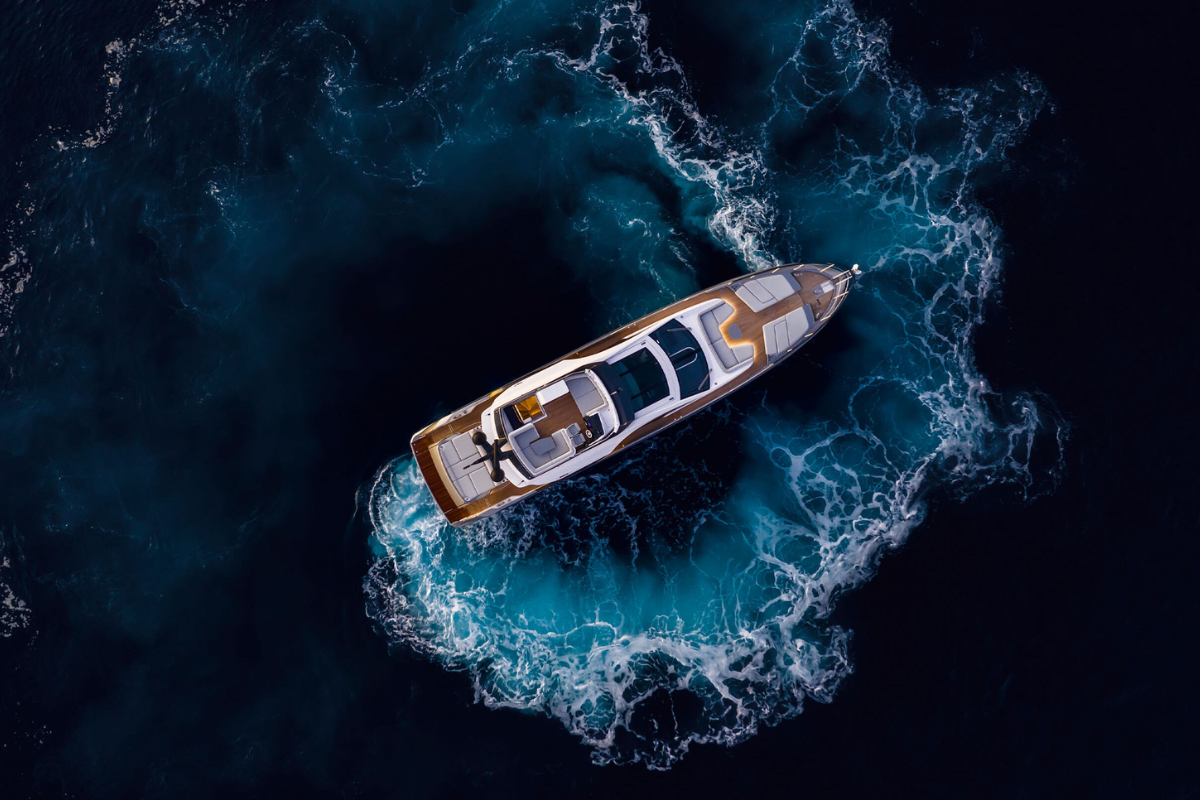The Role of Analytics in Optimizing Marine Ad Campaigns
When it comes to marine businesses, staying ahead requires not only innovative products but also smart marketing strategies. For marine companies, advertising is crucial to reaching the right customers, but it’s not just about launching campaigns—it’s about optimizing them for maximum impact. This is where data analytics comes into play. By leveraging analytics, marine businesses can refine their ad strategies, ensuring better targeting, higher click-through rates (CTR), and improved return on investment (ROI).

Understanding the Power of Analytics in Advertising
Analytics is the process of collecting, analyzing, and interpreting data to make informed decisions. In the context of marine ad campaigns, analytics provides valuable insights into customer behavior, campaign performance, and market trends. These insights empower businesses to:
- Identify Target Audiences: Understand who your customers are and what they’re looking for.
- Track Campaign Performance: Monitor how your ads are performing across various platforms.
- Optimize Ad Spend: Allocate budget to campaigns and channels that deliver the best results.
- Improve Messaging: Refine ad copy and visuals based on what resonates with your audience.

Key Metrics for Marine Ad Campaigns
To optimize marine ad campaigns effectively, it’s essential to track the right metrics. Here are the key performance indicators (KPIs) marine businesses should focus on:
- Click-Through Rate (CTR): Measures the percentage of users who click on your ad after seeing it. A high CTR indicates that your ad is engaging and relevant.
- Conversion Rate: Tracks the percentage of users who take a desired action, such as filling out a form or making a purchase.
Read: Boost Your Websites Potential with Effective Conversion Rate Optimisation
- Cost Per Click (CPC): Shows how much you’re spending for each click. Lower CPC means better cost efficiency.
- Return on Ad Spend (ROAS): Calculates the revenue generated for every dollar spent on ads. This is a critical metric for evaluating ROI.
- Bounce Rate: Indicates the percentage of users who leave your landing page without taking any action. A high bounce rate suggests that your landing page may need improvement.
Leveraging Analytics Tools for Marine Advertising
Marine businesses can use a variety of analytics tools to optimize their ad campaigns. Popular platforms include:
- Google Analytics (GA4): Provides detailed insights into website traffic and user behavior, helping you assess the effectiveness of your ad campaigns.
- Google Ads: Offers campaign performance metrics, including CTR, CPC, and conversion rates.
- Social Media Insights: Platforms like Facebook Ads Manager offer valuable data on audience engagement and ad performance.

Steps to Optimize Marine Ad Campaigns Using Analytics
- Set Clear Goals: Define what you want to achieve with your campaigns, such as increasing brand awareness, generating leads, or boosting sales.
- Segment Your Audience: Use analytics to segment your audience based on demographics, interests, and behavior. This allows you to tailor your ads to different customer groups.
- A/B Test Your Ads: Test different versions of your ads to see which ones perform better. Analytics can help you identify the winning variations.
- Monitor Campaign Performance: Regularly review your campaign metrics to identify trends and areas for improvement.
- Adjust Strategies Based on Data: Use the insights gained from analytics to refine your targeting, messaging, and budget allocation.
Real-World Example: Analytics in Action
Imagine a marine business selling inflatable boats. By analyzing data from Google Ads, the company discovers that ads featuring phrases like “lightweight inflatable boats” have a higher CTR than generic ads. They also notice that targeting certain states generates more conversions. Armed with this information, they:
- Focus their budget on high-performing keywords.
- Geotarget their ads to high performing regions.
- Update their landing page to highlight the benefits of lightweight inflatable boats for that particular region.
The result? A significant increase in conversions and a better ROI.
Benefits of Analytics for Marine Businesses
- Better Decision-Making: Data-driven insights take the guesswork out of advertising.
- Enhanced Targeting: Reach the right audience with the right message.
- Increased ROI: Optimize ad spend to achieve higher returns.
- Improved Customer Understanding: Learn more about your customers’ preferences and behavior.

Challenges and How to Overcome Them
While analytics offers numerous benefits, marine businesses may face challenges such as:
- Data Overload: Too much data can be overwhelming. Focus on the metrics that matter most to your goals.
- Skill Gaps: Not all businesses have in-house expertise in analytics. Consider hiring experts or using user-friendly tools.
- Keeping Up with Trends: The digital landscape is constantly evolving. Stay updated on the latest analytics and advertising trends.
Ready To Analyze?
Analytics is not just an add-on—it’s a necessity for optimizing marine ad campaigns. By leveraging data insights, marine businesses can refine their strategies, engage their audience more effectively, and achieve better results. Whether you’re targeting yacht owners, marine engineers, or sailing enthusiasts, analytics can help you navigate the complex waters of digital advertising with confidence.
Ready to optimize your marine ad campaigns? Start harnessing the power of analytics today to steer your business toward success. Contact us today!
Ready to take your business to the next level?
We are ready to help develop your strategy to success. Are you ready to get started?
Making waves in the marine industry requires more than just a great product or service—it demands a powerful digital presence. To attract customers and grow your business in the vast online ocean, you need to implement effective strategies that enhance your visibility and engage your audience. This means strengthening your online presence with a user-friendly website and strong SEO, leveraging social media to build a community around your brand, embracing influencer marketing to reach new audiences, and actively participating in the boating community to build trust and authority. By staying adaptable and creative, you can navigate the digital landscape and steer your marine business toward a prosperous future.
Remember, the key to successful marine marketing lies in staying connected with your audience, providing value, and consistently adapting to the ever-changing digital tides. With the right strategies in place, your marine business can navigate the digital seas with confidence, making a lasting impression on customers and driving your brand to new horizons.
